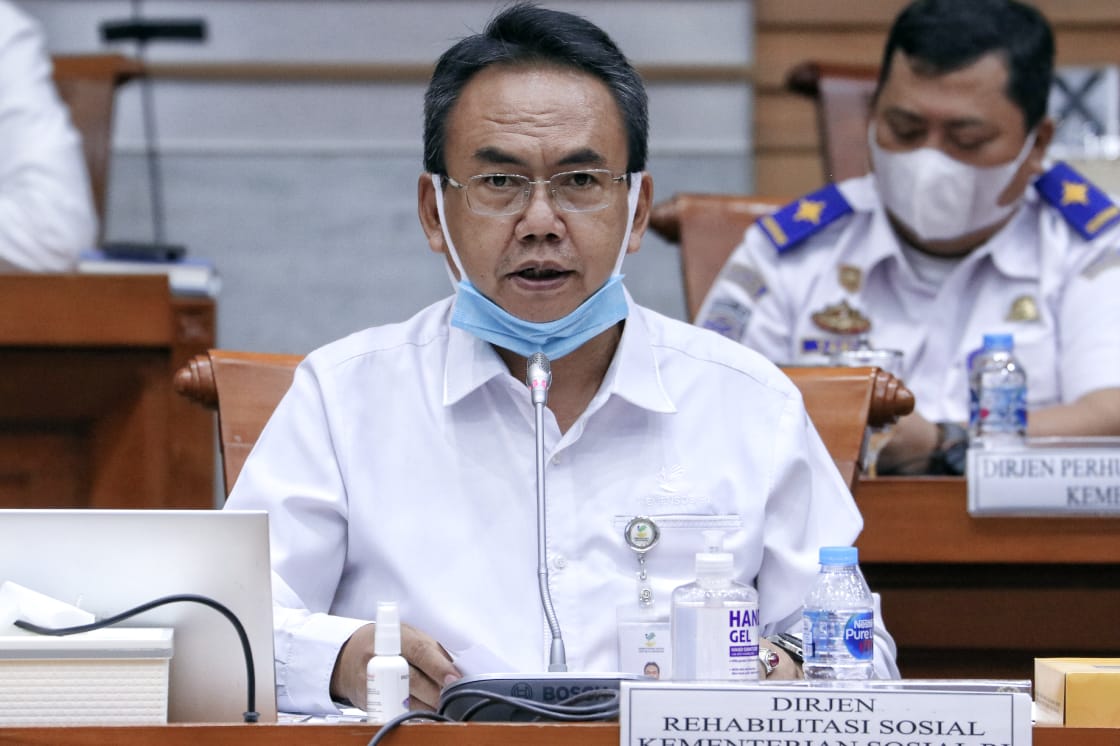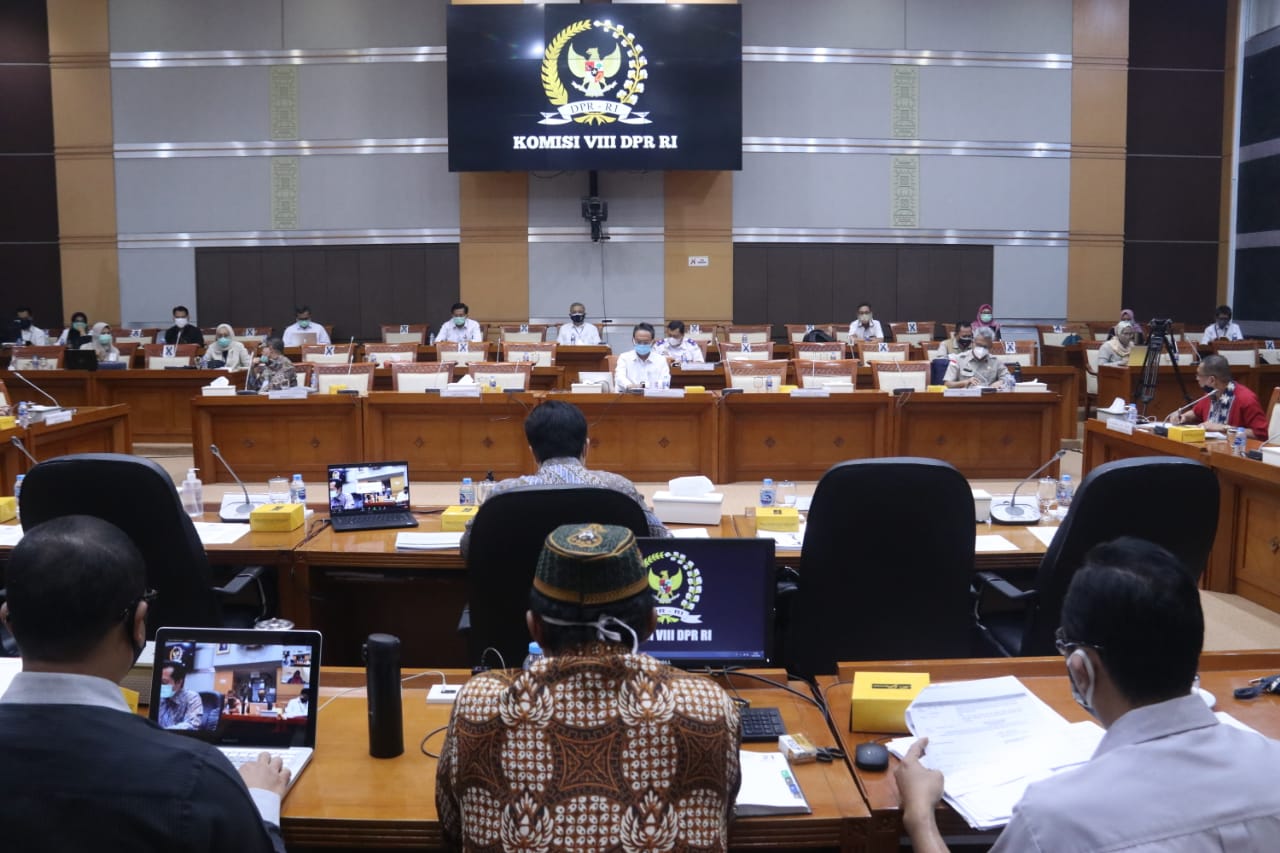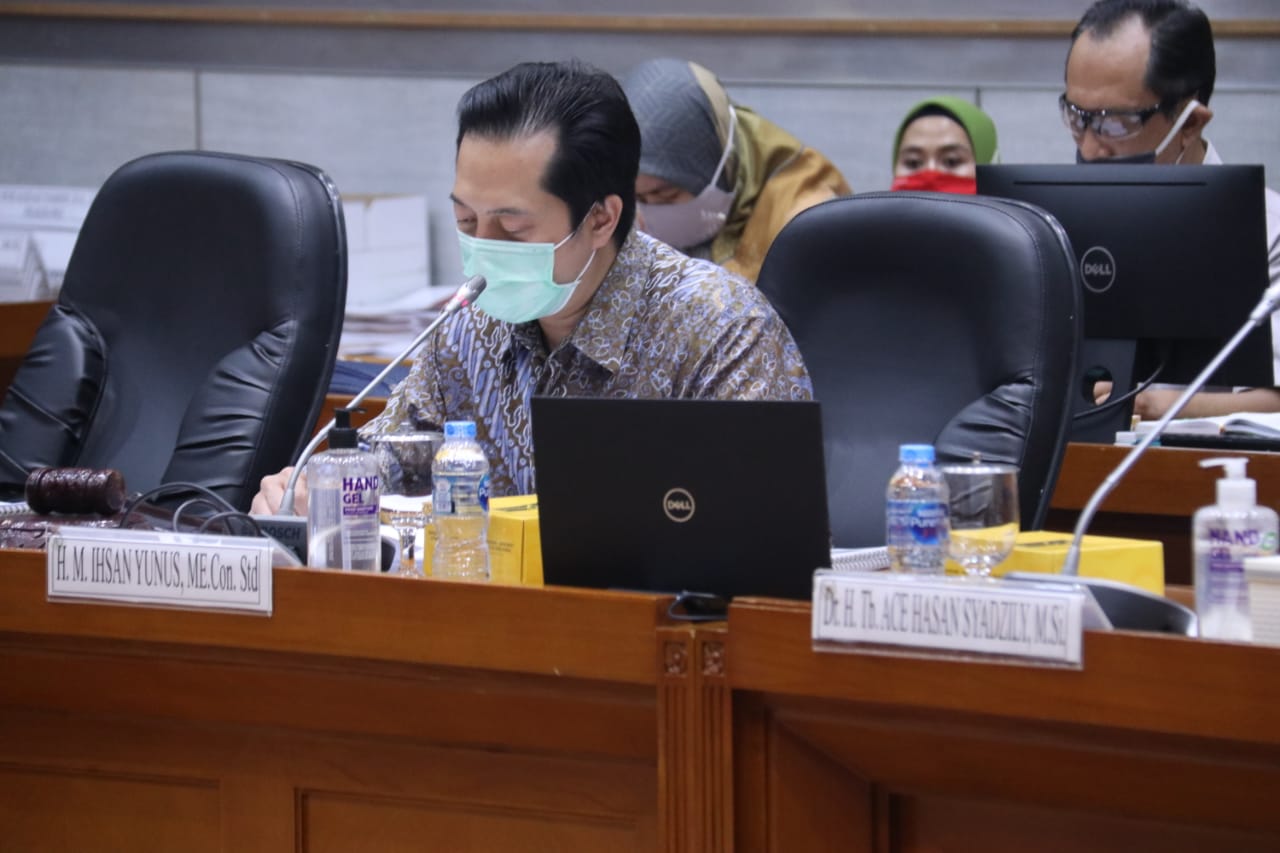JAKARTA (September 21, 2020) - The Director General of Social Rehabilitation of the Indonesian Ministry of Social Affairs, Harry Hikmat fulfills the invitation to a Hearing Meeting (RDP) organized by Commission VIII of the Indonesian House of Representatives regarding the Draft Law on Elderly Welfare (elderly) at the Nusantara II Building DPR RI, Jakarta.
On this occasion Harry conveyed about Increasing Budget, Protection, Access and Facilities and Welfare of the Elderly. The Law on Elderly Welfare will later be able to strengthen the integration of social rehabilitation with social security, social empowerment and protection of the elderly.
Based on data from the Statistics Indonesia (BPS), Bappenas regarding the projection of the Indonesian population in 2015-2035, the percentage of elderly in 2020 has reached 10%. This percentage will increase to 16.5% in 2035. Indonesia will also experience the phenomenon of feminization of the elderly, which is a condition where the number of elderly women is greater than that of elderly men.
Harry said that it needs to be understood together. As many as 40.6% of the elderly also still live with 3 generations and 27.3% live with their families. "This is a potential that needs to be maintained in the future, because the elderly can play a role in raising children and in making decisions in the family," he said.
The Aging Index in Indonesia based on the 2015 Inter-Census Population Survey (Supas) managed by Bappenas shows that in 2015, the highest Aging Index was owned by the Province of the Special Region of Yogyakarta and the lowest was Papua. "This aging index represents a high life expectancy," said Harry.
Harry added that in terms of poverty, the elderly is a group with a high poverty rate. The elderly is also a vulnerable group from behavior and acts of violence or crime.
The condition of independence of the elderly over the age of 60 years has decreased. Elderly who has decreased functional capability require long-term care. The elderly also wants to be cared for by their partners and children so they need the ability and skills in caring for the elderly.
Therefore, as a form of respect, fulfillment of basic rights and protection for the elderly as well as a form of the State of the Presence, the Ministry of Social Affairs through the Directorate General of Social Rehabilitation initiated the Social Rehabilitation Assistance Program (ATENSI) based on the life cycle, namely the provision of rehabilitation services that span from an early age to elderly.
For the Ministry of Social Affairs, there are 2 things that can be obtained by the elderly, namely social services through ATENSI and there are social assistances that can be used such as PKH and Sembako. "Especially social services in the form of ATENSI can be accessed by the elderly from the lowest to the highest socioeconomic status," said Harry.
Integration of social services with social assistance is a scenario and reference in the Law on Elderly Welfare. Social services are necessary. Therefore, the service paradigm shift in the future is to provide integrated and sustainable services, reaching all residents and a comprehensive social rehabilitation program.
In addition, the service paradigm shift also prioritizes the roles and responsibilities of families, communities and institutions that are temporary in nature as well as professional human resources.
The role of institutions is also needed in the implementation of ATENSI, one of which is the Social Welfare Institution (LKS). Many LKS care for the elderly. We hope that there will be further regulation in the Law on Elderly Welfare, because the strategic role of LKS is needed for family and community-based services.
The ATENSI program will be implemented in 41 Technical Implementation Units (UPT) belonging to the Ministry of Social Affairs consisting of Social Rehabilitation Centers. The services provided are in the form of basic needs services, family support, elderly care, therapy, skills/entrepreneurship, social assistance & assistance and accessibility support.
The Ministry of Social Affairs hopes that there will be easy access and facilities for the elderly, ranging from access to informal sector employment, services and trade for the elderly who are still productive, access to old-age health insurance, access to social care and therapy, access to mental and spiritual services, access to reunification services, concessions for cheap basic necessities, discounts and even free cars and access to mobile services.
Considering the number of elderly people continues to increase every year, it is necessary to anticipate the increase in the number of elderly people. Starting from improving the quality and quantity of service programs for the elderly, increasing the role of the family, increasing elderly-friendly public services, national campaigns for sustainability, increasing the role of the community and the private sector, improving the quality of community social welfare, expanding ATENSI for the elderly to empowering the elderly who are still productive.
The Ministry of Social Affairs strongly supports the steps taken by the Indonesian House of Representatives in drafting a visionary Bill on Elderly Welfare. The Ministry of Social Affairs hopes that this bill can be discussed as soon as possible by the DPR RI.
This meeting was also attended by related Ministries/Institutions, namely the Ministry of Health, Ministry of Public Works and Public Housing (PUPR). The Ministry of Transportation, the Ministry of Women's Empowerment and Child Protection (PPPA) and the National Board for Disaster Management (BNPB).
 English
English
 Bahasa
Bahasa



